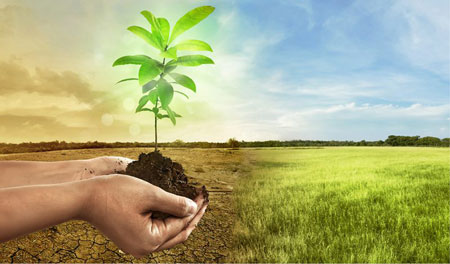Zubair Qureshi Islamabad
Leading experts and stakeholders in the renewable energy and climate finance space have emphasized conservation of energy by adopting energy-efficiency and climate smart housing techniques.
While participating in a webinar, they deliberated on the challenges and opportunities in this emerging space. Pakistan’s energy demand in 2021 was 29,435 MWs, whereas the supply after line losses in the same period was 26,083 MWs.
The webinar was organized by Karandaaz, a non-profit NGO working in Sustainable Energy and Economic Development (SEED).
The participants were of the view that the gap existed despite the fact that Pakistan possessed a potential to supply 37,261 MWs with existing infrastructure. Innovative steps need to be taken such as, net metering through which consumers who own renewable energy facilities can supply excess produce to national grid in exchange for incentives, and energy efficient commercial construction and housing models.
According to Ministry of Energy, Power Division’s 2021 figures, Pakistan’s energy mix remained heavily reliant on non-renewable sources with a meager share of renewable sources such as solar (400 MWs), wind (1235 MWs), and bagas (364 MWs) despite their vast potential. Dr Shamshad Akhtar, Chairperson Karandaaz said, “Karandaaz’s research tabled for Thursday’s deliberation offers perspectives on Pakistan’s key initiatives, which if pursued effectively, have potential to be a game changer in decarbonization subject to expeditious resolution of sector issues and challenges by fixing the enabling sector and regulatory policy frameworks, developing public private partnership to leverage private capital with appropriate risk mitigation and management frameworks.
A few promising initiatives are noteworthy. 2019 Alternative and Renewable Energy Policy if proactively implemented will promote low carbon pathways as it targets a change in energy mix by lifting the share of renewables to 20% by 2025 and 30% by 2030. Complementing this target is raising the share of hydel capacity to 30%.
Advancement in this area will help resolve the energy crisis and reduce the dependence on imported energy fuel such as oil, coal, and LNG that exposes the economy to international price shock.
Climate mitigation anchored on renewables and energy efficiency will help ease the BOP and fiscal pressures that have put the entire economy at risk. Pakistan is falling short of its targets already as the share of renewable energy in the total energy mix went down to 2.2% in 2021 so significant catching up is required in the next 3 years.”
Waqas ul Hasan, CEO Karandaaz said, “Pakistan remains among the group of countries most vulnerable to climate change. The ND-GAIN Index ranks Pakistan at 152nd, among 181 countries, based on its vulnerability to climate change and readiness to improve its resilience. Countries in developed and emerging economies alike are moving towards innovative solutions and technologies in energy efficiency and renewable energy through creative financing solutions such as bonds, climate adaption funds, and wholesale financing facilities. Through Karandaaz’s Green Initiative, we have also made several investments in the renewable energy domain and launched a challenge fund as well. We are particularly proud of an investment in a commercial green building in Karachi which will fulfill criteria of reputable accreditations.
This investment can potentially be converted into Pakistan’s first Green REIT. So far, Karandaaz has supported 10.6 MWs capacity of clean energy in textile, SME and household segments through its investments in renewable energy.”
In her concluding remarks, Ms. Annabel Gerry, Development Director of the UK’s FCDO said, “I would like to commend the organisers and participants of this extremely important webinar to discuss issues related to renewable energy and energy efficiency that face Pakistan.
The UK is leading global efforts to combat climate change and has already cut its own emissions by 43% since 1990, which is the fastest among the G-7 countries.
The UK is also at the forefront of leading on international climate cooperation and in 2019, the UK Government announced plans to double its provision of international climate finance to £11.6 billion over the period 2021 – 2025 to support developing countries respond to challenges of climate change. Our work in Pakistan for the promotion of renewable energy and energy efficient businesses and housing through Karandaaz is part of the same approach,” said she.










